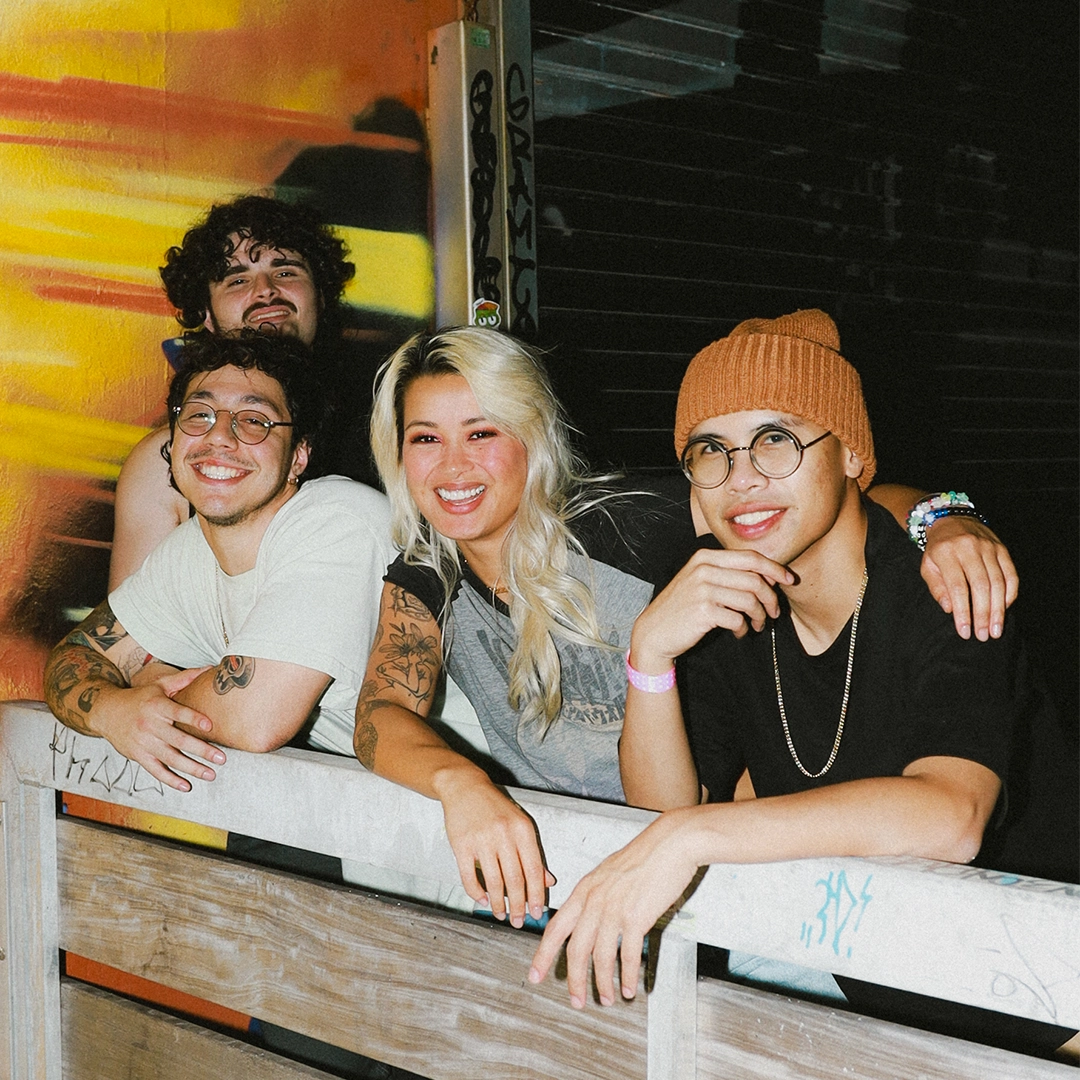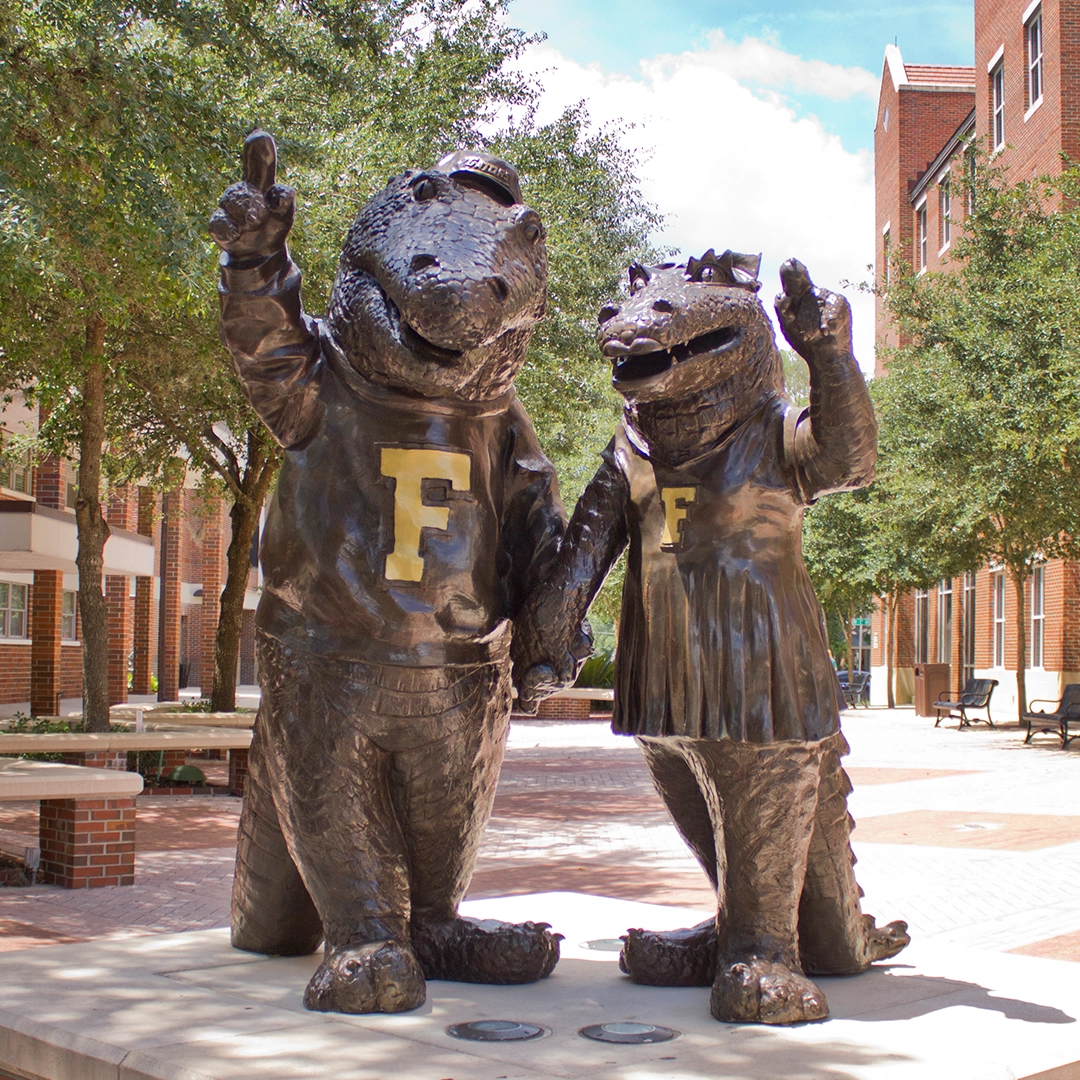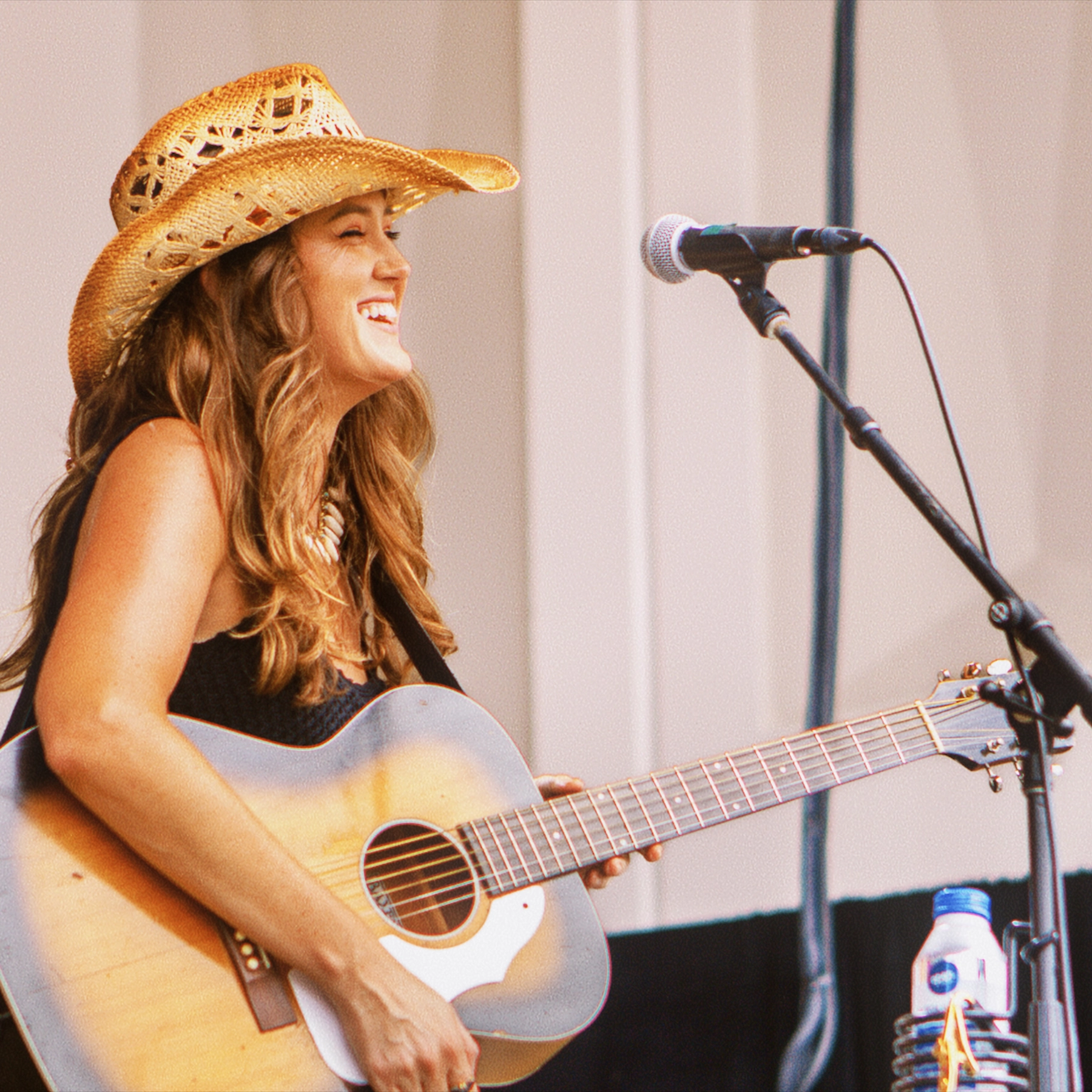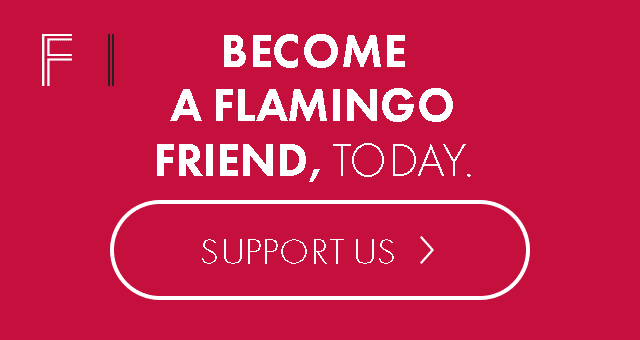by Maddy Zollo Rusbosin | May 16, 2022
How Orlando Bred the Pop Industry’s Hottest Boy Bands
A nostalgic look back at how Orlando shaped a genre and one of the larger-than-life moments in pop music: the boy band

On New Year’s Eve in 1998, I met my first love. Well, loves if you want to be totally accurate.
I went into the evening as your typical 11-year-old ’90s girl: wearing an outfit ripped from the pages of a Delia’s catalog, smelling like a nauseating explosion of Bath and Body Works roll-on glitter and body spray and singing along to Orlando’s pop radio station XL 106.7 in the car. You see, I had been invited to a Backstreet Boys concert that night. While I knew they were the local crooners behind bops like “Everybody (Backstreet’s Back)” and “Quit Playing Games (With My Heart),” I didn’t realize that the next few hours were about to be a defining moment of my adolescence—or that I’d leave with five brand-new boyfriends named AJ, Brian, Howie, Kevin and Nick.
Crammed in Orlando’s O-Rena, later known as the Amway Center, the evening kicked off with LFO as the opening act. The rap-pop trio, one of the many cogs in the Trans Continental Records boy-band machine, was on the brink of hitting it big that following June with their song “Summer Girls” (the track that forever ingrained lines “I like girls that wear Abercrombie and Fitch” and “Chinese food makes me sick” into everyone’s collective pop-culture conscious).
While LFO set the tone for the evening—one defined by shrill screams of teenage girls—things didn’t truly reach a fever pitch until the Backstreet Boys made their entrance, popping out of the stage like five handsome jack-in-the-box toys who happened to have a pyrotechnic show behind them. I don’t know if it was the synchronized dance moves, the overtly sexual thrusting, the semicoordinated outfits ranging from Sopranos-esque suits and fedoras to flouncy, chest-baring shirts or the melodies about unwavering love and devotion, but before the clock struck midnight, I went from casual listener to full-on fangirl.

Like most middle-school crushes, my new obsession was all-encompassing. However, it didn’t help that I lived in Orlando: ground zero for boy bands. They were everywhere around town.
I didn’t realize it at the time, but that New Year’s Eve concert was an outer band of the impending hurricane that was boy-band mania, and it wasn’t just going to hit Florida—it was going global. While those next few years from the late ’90s to the early aughts would come to be known as the perfect storm of pop music, many people, including myself, still wonder decades later why exactly was Orlando its eye?
Untapped Talent
It wasn’t mere coincidence that the City Beautiful was dubbed the Motown of pop music. Lou Pearlman, the late, now disgraced producer and music mogul behind the Backstreet Boys, NSYNC, O-Town and countless other musical acts, called Orlando home—that is until 2008 when he went to prison for conspiracy, money laundering and false bankruptcy proceedings. Pearlman, who originally made his fortune in the aviation industry, became interested in forming a pop group after chartering a plane for New Kids on the Block. After realizing the monetary potential for a group like theirs, he set his sights on forming the next big thing. While other musicians during that time tended to be based out of New York City or Los Angeles, Pearlman saw an untapped market in Central Florida, so he didn’t even have to leave state lines.
“The talent pool in Orlando was good,” says Melinda Bell, president and CEO of StraightUp Entertainment Group and managing partner of So So Def Management. Bell also co-founded the Wright Entertainment Group in 1995 with Johnny Wright, the current CEO. While Pearlman launched the Backstreet Boys, the Wright group managed the Backstreet Boys and NSYNC. Wright and Bell also managed other acts, from the likes of Britney Spears to the Jonas Brothers. “Theme parks became a place where if you didn’t land a part in a play or commercials, you could go audition there. They had the characters, they had the dancers, they had the emcees,” Bell furthers.

That’s why in 1992, Pearlman placed a single-page ad in The Blue Sheet, a newsletter that listed auditions and opportunities for aspiring performers, in the hopes of finding young men for a doo-wop harmony group. It just so happened 14-year-old AJ McLean saw the listing. The Palm Beach native had moved to Orlando with his mother and recently wrapped up an acting gig for the Nickelodeon show Hi Honey, I’m Home.
“I told my mom, ‘Why not? Let’s just go for the audition,’” McLean says. “We drove to Lou’s house. I had a song prepared. I had some choreography prepared. Lou basically signed me on the spot, and he was off to the races.” McLean was the original Backstreet Boy and has been a part of the band for 29 years now.
Thanks to attending his fair share of casting calls, McLean knew a few of his soon-to-be bandmates. One familiar face was Howie Dorough, a fellow Latino who also lived in Orlando, and another was Nick Carter, a baby-faced blonde from Ruskin, Florida, who decided to sign with Pearlman instead of joining the Mickey Mouse Club. The fivesome was rounded out with Kevin Richardson, who’d been working at Walt Disney World as Aladdin and various other characters, along with Richardson’s cousin, Brian Littrell. It was then that the Backstreet Boys—Orlando’s first true boy band—was born.
Something in the Water

Although the Backstreet Boys were the first musical group to officially put the city on the map, Central Florida was oozing with up-and-comers. “I feel like Orlando has always tried to be a mini Los Angeles,” McLean says. “There just seemed to be a slew of talent living there in Orlando all at the same time.” When McLean was residing in Kissimmee, both singer Britney Spears and actor Ryan Gosling lived in his apartment complex, and Latin star Luis Fonsi went to Dr. Phillips High School down the street, the same alma mater of NSYNC’s Joey Fatone. “There was something in the water—there’s really no other way to describe it,” McLean adds.
Beyond a crop of eager entertainers, Orlando also offered something crowded metropolitans didn’t have: space. “Orlando is a little more spread out, so it gave you that chance to breathe without the fans going crazy or finding you,” explains Bell, who still operates her companies out of the city. “It was always a great place to record, to rehearse, and because you had the facilities, you could do photoshoots and no one would even know they were done in Florida because we had the locations and the landscape.”
Read our exclusive interview with Backstreet Boys’ AJ McLean
As the Backstreet Boys’ success grew, first in Europe and then in the states, so did Pearlman’s ambitions. He and his label, Trans Continental Records, began zeroing in not just on his original fivesome, but other groups as well. For Dakari, who worked as a house writer, music producer and in the artist development division at Trans Continental for eight years, he first realized there were more players than just the Backstreet Boys when he was visiting Orlando to interview for a position.
There just seemed to be a slew of talent living there in Orlando all at the same time. There was something in the water—there’s really no other way to describe it.
— AJ McLean
Dakari was just getting to the hook of his produced track for Wright Entertainment Group when Wright abruptly stopped him and left the room.
“Five minutes later, these five white dudes come in looking mad crazy,” Dakari says. “One’s got dreads, one’s got red tips in his hair … They’re not Backstreet. Who the hell are these guys?”
Those seemingly random guys just happened to be NSYNC before they took over the charts—and hearts—of America.
Even after the Backstreet Boys and NSYNC eventually parted ways with Pearlman and his company in 1998 and 1999, respectively, over legal disputes about Pearlman’s handling of their finances and his fraudulent behavior, Trans Continental continued to be the pop music behemoth of Central Florida until it closed its doors in 2006. Their headquarters, located in downtown Orlando’s iconic Church Street Station, was a breeding ground for up-and-comers, promising the sugarcoated dream of catchy hit singles and hordes of screaming fans.
During his tenure at the label, Dakari produced everyone from LFO and NSYNC to Aaron Carter and Jordan Knight, and he launched Trans Continental’s foray into hip-hop with the local duo Smilez & Southstar. One of his most hands-on experiences with developing the next Billboard sensation was through his work with O-Town. O-Town was the product of ABC’s Making the Band, a reality series that chronicled the inner workings of how the boy-band sausage was made.
“I was their first producer, so I saw from the jump how hungry they were. It was a joy to see young people not taking that for granted,” Dakari says. “Some people can get to a situation and feel like you’ve arrived and not work for it because you feel like it comes easy. But they learned early—you have to work for it if you want to be on point, and you want to be competitive. They were competitive for girls, studio time, the rehearsal room—people be outside waiting at the door for the next group to get out.”
Even with the massive influence Trans Continental had over the pop scene, for every success story, there were countless other Orlando groups, from Take 5 to Innosense, that never quite made it.
A City of Celebs
For those who did make it, a huge proponent of their success was local radio. “Radio was a huge partner for the pop movement,” Bell explains. “Orlando’s XL 106.7 was so supportive. They’d always bring [a new band in], and any time a single went out, they’d do a radio interview and talk about it.” Hearing songs like the Backstreet Boys’ “I Want It That Way” or NSYNC’s “Bye Bye Bye” on the airwaves was a huge departure from the grunge rock and dance tracks that had been popular before they hit the scene. Clearly, listeners were ready for a change. Both the Backstreet Boys and NSYNC went on to break records for single-week record sales, and the groups have cumulatively sold more than 200 million records worldwide.
“During that time, everybody’s trying to break new artists,” Johnny Magic, the host of Johnny’s House on XL 106.7 says about the early days of the Backstreet Boys. “For us, the appeal was: Here’s a band that’s getting started from Orlando, so if they make it, let’s go ahead and give them a try. If they’re out doing appearances, let’s get behind it and let people know. When it started, we had no idea that they had something that was going to go worldwide.”
Magic and his team watched as the Backstreet Boys gradually went from hosting events in a Kmart parking lot in Kissimmee and getting dressed in public bathrooms to performing at the House of Blues in Downtown Disney with an actual wardrobe budget. It was during their show at House of Blues that Magic realized they were on the brink of superstardom. “To watch the young girls go crazy, doing the Michael Jackson thing where they’re crying, I’m like, ‘Oh my god, what the heck is going on?’” he recalls. It was around that same time when fans started gathering outside the radio station whenever the Backstreet Boys would be in the studio hoping to get a glimpse of them.
When it started, we had no idea that they had something that was going to go worldwide.
— Johnny Magic
“[Backstreet Boys] opened the doors and they had a system. Once NSYNC came out, we knew they were big,” Magic says. “[The boy bands] knew that XL gave them their start, so they were loyal to us.” When NSYNC was at their peak, they hosted an annual star-studded Challenge for the Children event and asked XL106.7 to emcee, flying the team to whatever city it was being held in.
“I remember going to Miami, and they gave me all access,” Magic says. “It was crazy for me to experience all of that. But that showed me how big they had gotten. These were A-list celebrities that just wanted to be with them.”
Even ABC’s very own boy band O-Town found success on the charts with their singles “Liquid Dreams” and “All Or Nothing,”—their top single that went on to reach number three on The Hot 100. To this day, the band credits Orlando and its reputation for their success.
“It was so exciting when I was picked to go to Florida for Making the Band,” says O-Town’s Trevor Penick. “You knew what Orlando was: Backstreet Boys, NSYNC, LFO and all these artists were there. It was this mecca. For us, we got thrown into this world.”
Unlike his boy-band predecessors, Penick and his other bandmates were instantly indoctrinated into the Trans Continental fold by living in a house together in the Windermere neighborhood, rehearsing at the studios, then exploring what the city had to offer, from eating at the Florida Mall to hopping around Downtown Disney and Pointe Orlando.

“It was just the greatest time to be in your early 20s,” adds Penick’s bandmate Jacob Underwood about the early days of O-Town. “There were so many events at Planet Hollywood, and we did movie premieres like one for the movie Longshot. Plus, every time we went to dinner or even the mall, we’d have cameras on us filming. It was really an interesting Orlando experience. We got to see the city as if we were celebrities already, because of all the hoopla around us due to the show.”
And unlike what the coverlines of teen magazines made readers believe, there was a camaraderie—not a rivalry—among the Orlando boy bands.
“O-Town had a house right near Chris Kirkpatrick of NSYNC and other NSYNC and Backstreet Boy members,” Underwood says. “Even Scott Stapp from Creed was around. It was this fun community pool of young artists. Everybody was constantly having house parties, bands blending together.”
A Larger-Than-Life Legacy
To this day, that mutual respect and love of pop music continues to bring the guys together with concerts and events that feature multiple boy banders. Just take ABC’s special this past December: A Very Boy Band Holiday.
“We’re all buddies now and are getting to do things together. The fans are loving it,” McLean says. Beyond the Backstreet Boys, who are touring this summer across the states, he’s put on shows all over the country, from Las Vegas to Miami, with his friends from NSYNC, 98 Degrees, Boyz II Men and more. “I will always have a special place in my heart for Orlando, because it’s built the career I have now almost 30 years later,” he continues.
Orlando feels like my high school years. We look back at how much we learned and then at our character today, and it’s all thanks to our time there. Twenty years later, it’s carried us into the best friendships we’ve had, and four of us are still in the band doing it together.
— Jacob Underwood
Underwood and Penick agree. “Orlando feels like my high school years. You have all these experiences to become who you are,” Underwood says. “We look back at how much we learned and then at our character today, and it’s all thanks to our time there. Twenty years later, it’s carried us into the best friendships we’ve had, and four of us are still in the band doing it together.”
As for Penick, he feels a lot of emotion anytime he lands in Orlando. “It was such a life-changing place and such a wonderful thing happened to me there,” he explains. “That’s what life is—it’s about the memories when you can just drive by a place, and it makes you feel a certain way. That’s what Orlando does.”
While McLean, Underwood and Penick understandably have a nostalgic appreciation for the city, it’s fitting that I—along with probably thousands of other ex-teeny boppers—feel that same way about their music. That sentiment was only confirmed in 2017 when my best friend from Orlando and I flew to Las Vegas to see the Backstreet Boys in residency at Planet Hollywood. It had been over 16 years since we had gathered in an arena to see them, but as soon as the fivesome took the stage and began to belt out “Larger Than Life,” all my memories from middle school came pouring back. We were dancing and singing like we did in our living rooms to MTV’s Total Request Live so long ago.

Living here as an adult, it’s crazy to think that Orlando was to thank for all that teenage lust for those few years. Even now as I drive by places in town, like East West Record Shop, I reminisce about waiting in line for hours there in the parking lot before the Backstreet Boys or NSYNC tickets went on sale. It was a distinctive era for sure—one where you couldn’t access your favorite bands via social media and had to wait with bated breath for a new single to drop so you could run to the nearest CD store or attempt to crash your parents’ computer by downloading it off Napster.
“I think it was a moment in time,” Bell told me when I asked if she thought that type of fandom could happen again. “I think with the right talent you could bring it back, but nobody has been able to put a boy band together since.”
Recently, I rewatched that Backstreet Boys New Year’s Eve concert I attended from 1998 (unfortunately, I had to stream it since I couldn’t find the dusty VHS tape I stuffed somewhere in my old bedroom). As the show was concluding, Howie Dorough came out on stage to bid the arena full of rabid fans goodbye.
Although he didn’t know it at the time, his sign-off could be used to sum up the city’s relationship to pop music as a whole. “Orlando, you guys definitely have it going on.” And he’s right, Orlando did. And who knows, maybe it’ll be topping the charts again.





